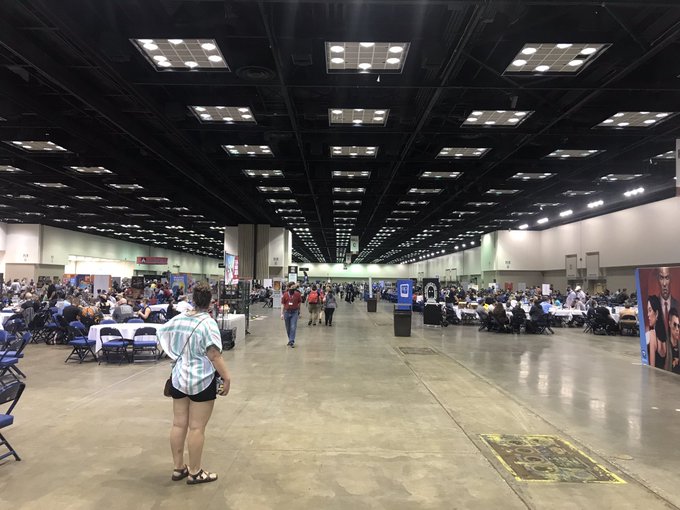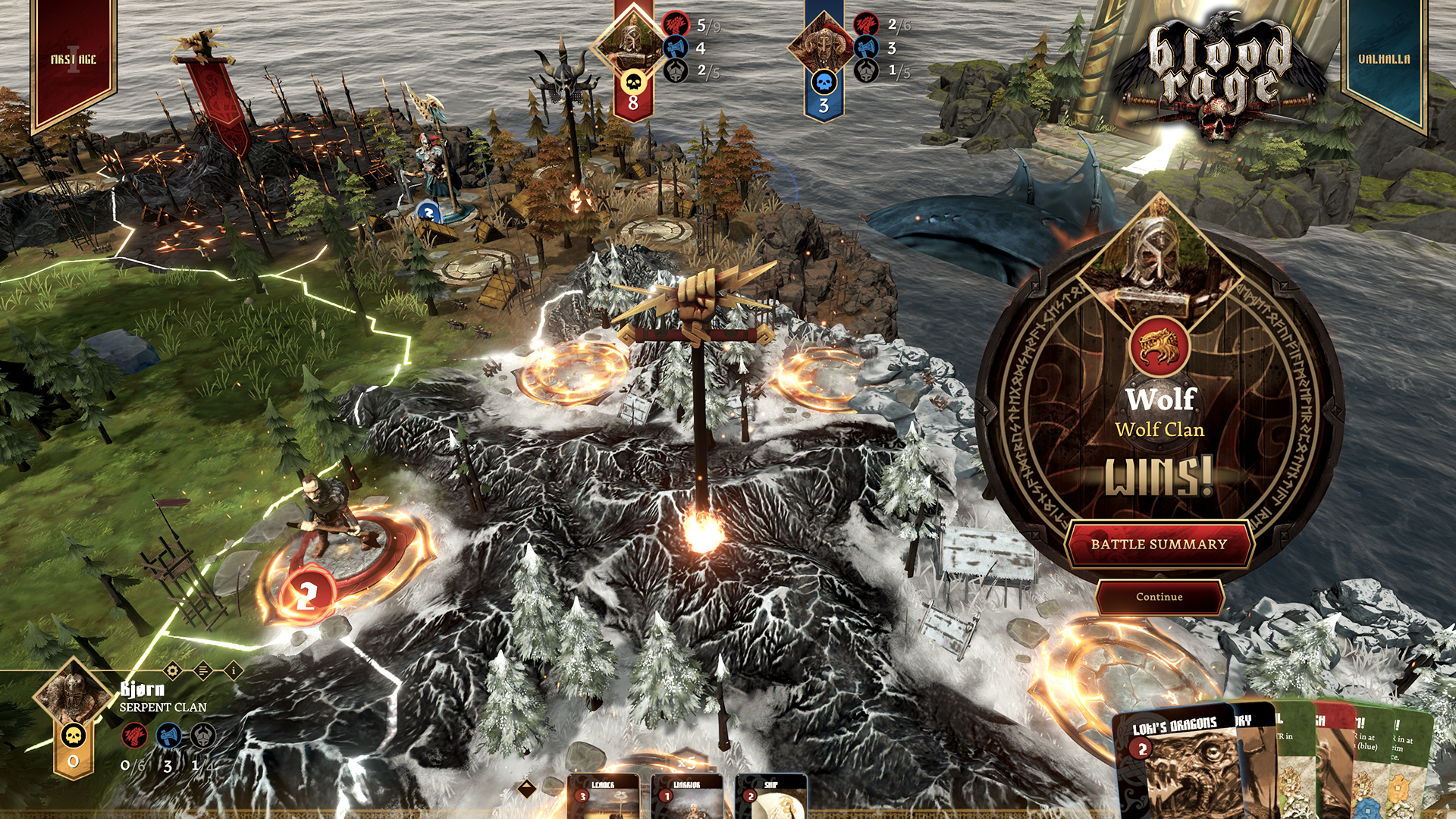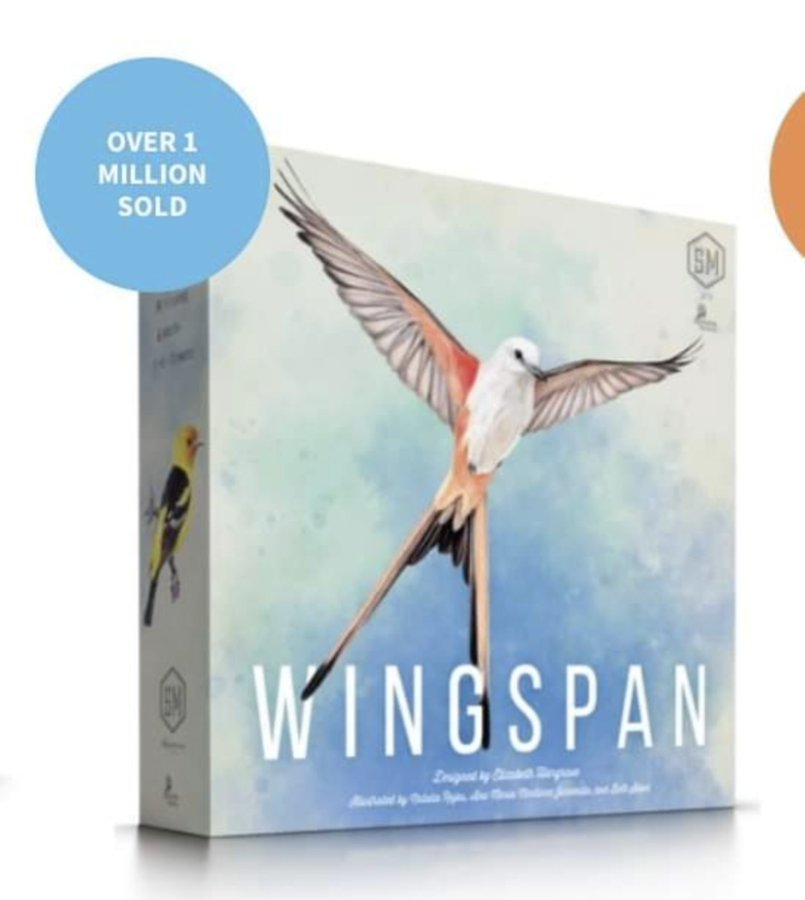So, 2021. Was it an improvement over 2020 or merely a glitch-ridden patch, version 2020.1? Your answer will depend on many factors, not limited to where you live, whether you or any near and/or dear to you got COVID, and to what extent your livelihood has been affected by same.
I’m going to use this week’s column to cast an eye back over the past year in Tabletop to try to sum it all up. Because here at the DWP we focus on the Tabletop world, and that’s what we do in the waning days of our calendar year, here in “content-creation-land”.
First, here are the five stories which I think have had the biggest impact on our little bubble-world. They’re not necessarily the ones which raised the biggest stink on Twitter; instead, they’re bellwether events which I believe go to the heart of where the Tabletop industry is and where it’s going:

These aren’t going away any time soon, and gamers are going to have to get used to it. As a world economy we’ve hitched our wagons to global supply chains and the disruptions caused by COVID have had severe effects which are both immediate and ongoing. They’ve already effectively killed off any new content for Keyforge as well as all new Ravensburger product. To compound this, as we found out in our interview with Modiphius Games founder Chris Birch last month, infrastructure problems in the US have just exacerbated things for all publishers.
But prices for Tabletop games were going up even before 2021, and there are some prominent industry folx, such as Eric Lang, have argued that boardgames are still underpriced relative to other forms of entertainment. Whether you agree with that assessment or not, the fact that some publishers might feel that way means that they will try to charge more for them to extract full value. And frankly, given how much some gamers are willing to shell out for blinged out crap these days, those publishers are probably right.

The ongoing consolidation at the top of the Tabletop world continues unabated. The days when cozy little hobby publishers like Mayfair, Looney Labs, and Alea dominated the industry are long gone. And although they’re still a long, long way behind videogame companies in terms of profits and market caps, boardgames are increasingly being looked at as a “growth” commodity, attracting the kind of money–and thinking–which signals an industry entering its “mature” phase.
Of all the new behemoths none really matches Asmodée. Over the past five years they have acquired or absorbed Days of Wonder, Z-Man, Fantasy Flight, and Mayfair. And then this year they:
Most gamers aren’t aware of these deals, nor do they care–yet. But history shows that this consolidation, while good for business, isn’t necessarily good for consumers. For instance, last year Asmodée implemented a new returns policy which effectively offloaded the responsibility for dealing with damaged/incomplete games to local FLGS’s.
It also means that, to assure an ongoing stream of revenue, Asmodée is much less likely to take chances with unknown designers with unproven track records, and much more likely to greenlight games which “give the public more of what they want”–which is of course their right. But it ain’t necessarily good for the evolution of game design.
Another sign that boardgames are considered Big Business is the increasing incidence of counterfeit copies for sale on Amazon, eBay, Aliexpress, and even FLGS’s. As far back as 2018, Christian Peterson of Asmodee NA was interviewed by ICv2 about it. There’s a Geeklist of examples from 2020. Those of us who are old enough to remember the days of actual mixtapes and videogames that came on 5 ¼” floppy discs will remember that this kind of pirating eventually led to the kind of draconian “copy-protection” measures which
Tabletop publishers had already begun to sour on it, holding their noses and using it anyway despite its total lack of tools to deal with online trollery. But the backlash from Kickstarter’s announcement in early December that they would be embracing blockchain technology was big enough news that it ran in Forbes, Bloomberg, and even the New Musical Express, such is KS’s influence in many realms. Many Tabletoppers (consumers as well as publishers) took to social media to declare they would never use KS again. Time will tell if those threats are followed through with action, but in the meantime other crowdfunding platforms, particularly Gamefound, are salivating at the thought of siphoning off users and backers.

On November 19th, Elizabeth Hargrave tweeted that Wingspan had sold over one million copies–an unheard-of sales curve for a game only released in 2018. It’s an incredible milestone for many reasons, the most important of which is that it should put to rest any notions that (a) females (whether born or by choice) cannot design good games; and (b) only games about dungeon-crawling, medieval traders, space opera, or zombies can sell well.
I say “should put to rest” but alas it probably won’t because, even in 2021, there are still way too many people who feel they have proprietary ownership of the Tabletop “brand” and what it means. Things are moving in what I believe is the right direction–towards more diversity in representation, design, and audience and less tolerance for intolerance–but we still have a ways to go. I can’t feel good that one million copies of Wingspan are out there in the Tableverse, and that some are bound to inspire others to spread their wings.
Tomorrow I’ll run through five games I’m looking forward to playing in 2022…I hope…c u then.
[…] Yesterday I looked at the five stories that, to me anyway, were the most significant in terms of their effect on the Tabletop industry. Tomorrow I’ll list my five favorites from this year. […]
Hey mate! Story number three cuts off short, just when it’s getting interesting 😉
[…] Tuesday I looked at the five stories that, to me anyway, were the most significant in terms of their effect on the Tabletop industry. Yesterday I pined for the five games I’m most looking forward to playing next year (if all goes well, which means “who knows”). […]